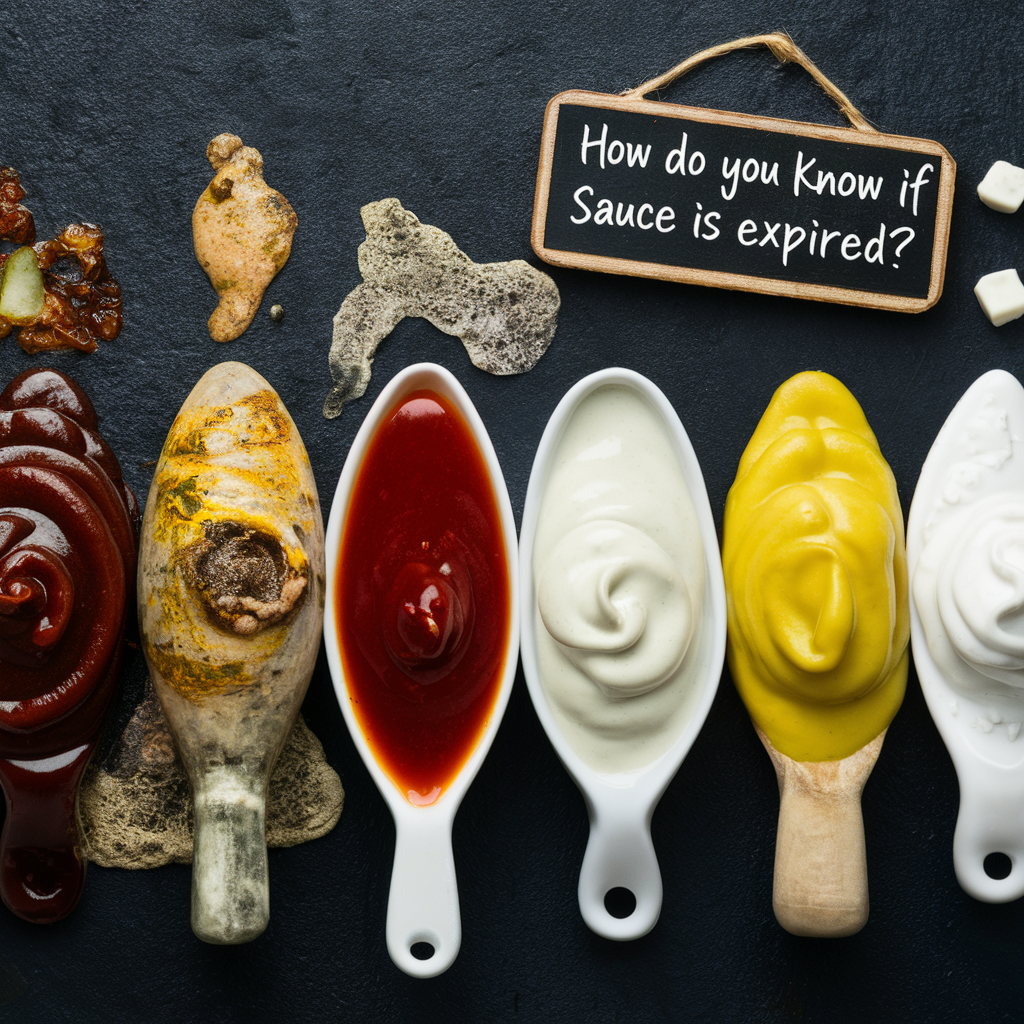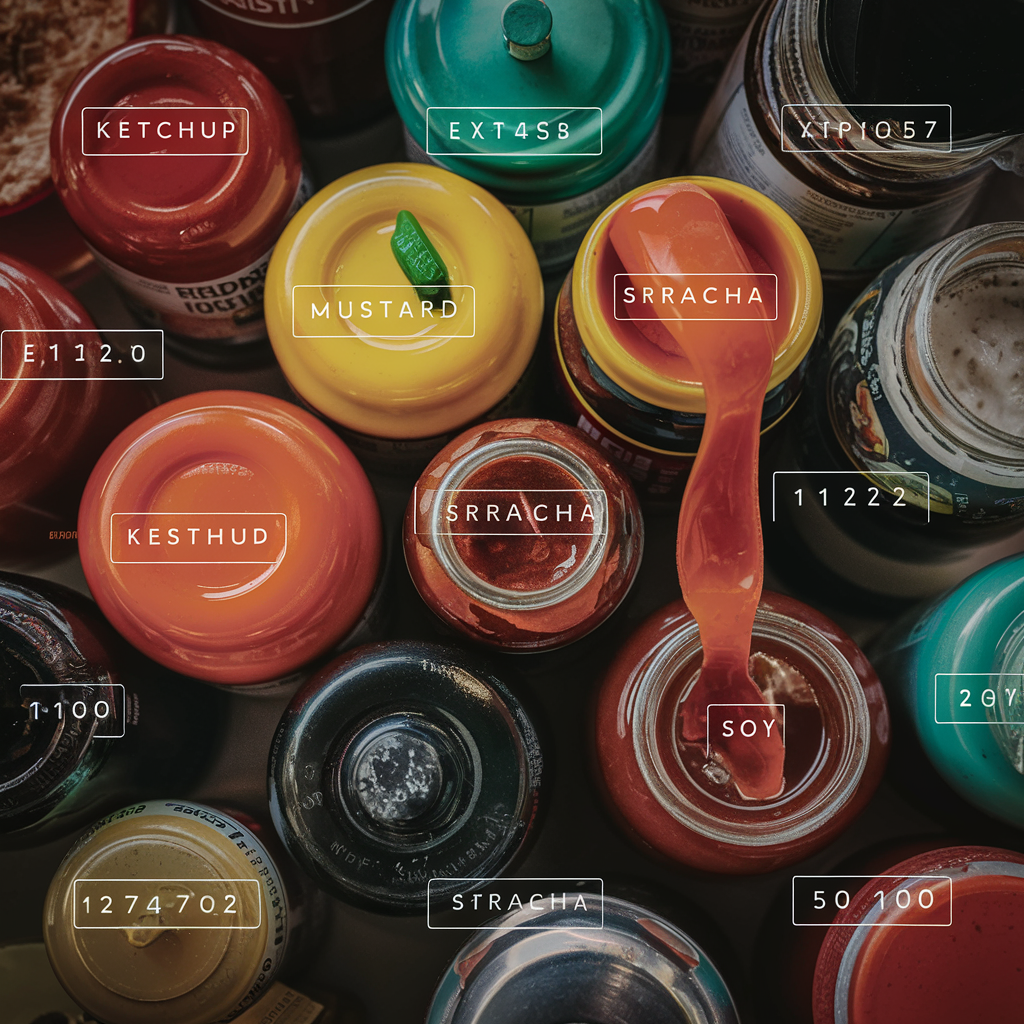Sauce is a staple in kitchens worldwide. It adds flavor, texture, and richness to dishes, transforming ordinary meals into something extraordinary. However, knowing how to tell if sauce is expired is crucial for ensuring that your meals remain both delicious and safe. Consuming expired sauce can lead to unpleasant experiences or even foodborne illnesses. But how do you know if sauce is expired? This article will guide you through the telltale signs of sauce spoilage, tips for proper storage, and advice on how to keep your sauces fresh for as long as possible.
Understanding Sauce Expiration Dates
Before diving into the signs of expired sauce, it’s essential to understand the difference between expiration dates, best-by dates, and sell-by dates.
- Expiration Date: This is the date after which the manufacturer cannot guarantee the safety or quality of the sauce. Knowing how to tell if sauce is expired past this date can help prevent any health risks.
- Best-By Date: Indicates the date until the product is expected to retain its peak quality. While the sauce may still be safe to consume after this date, understanding the signs sauce is expired will help ensure you’re using it at its best.
- Sell-By Date: This is a guide for retailers to know how long the product should be on the shelf. For consumers, it’s crucial to check sauce freshness before use, even if it’s within the sell-by date.
10 Signs Your Sauce Is Expired
Even if your sauce is within its expiration date, it can still go bad under certain conditions. Here are the key signs that indicate how to know if sauce is expired:
1. Unpleasant Odor
The first sign that your sauce might be expired is a foul or off-putting smell. Fresh sauces typically have a pleasant, appetizing aroma. If your sauce smells sour, rancid, or just off, it’s a clear indication that it has spoiled. This is one of the most obvious signs sauce is expired.
2. Mold Growth
Visible mold is a definite sign that your sauce has expired. Mold can appear as fuzzy patches of various colors, such as green, white, black, or even orange. Mold not only spoils the sauce but can also cause health issues if ingested. Knowing how to tell if sauce is expired by checking for mold is crucial.
3. Color Changes
Another sign of an expired sauce is a change in color. For example, tomato-based sauces may turn a darker shade of red or even brown. A slight change in color might not always indicate spoilage, but significant discoloration usually does. It’s important to check sauce freshness by observing its color.
4. Texture Changes
If your sauce has separated, thickened, or thinned significantly, it could be a sign of spoilage. For example, a sauce that has become lumpy or grainy is likely past its prime. Additionally, if oil or liquid has pooled on top, it could indicate that the ingredients have started to break down. This is a key factor in understanding how to tell if sauce is expired.
5. Unusual Taste
Taste is another reliable indicator of whether a sauce has expired. If the sauce tastes sour, bitter, or has lost its usual flavor, it is likely spoiled. Always taste a small amount first before adding it to your dish. Recognizing this as a sign that your sauce is expired is crucial for food safety.
6. Bulging Container
A swollen or bulging container, especially with canned sauces, is a major red flag. This can indicate the presence of gas-producing bacteria inside, which can be dangerous if consumed. Knowing how to tell if sauce is expired includes checking the condition of the packaging.
7. Past the Expiration Date
While sauces can sometimes be safe to eat after the expiration date, it’s generally best to err on the side of caution. If the sauce is past its expiration date, inspect it closely for any of the signs mentioned above before using it. This is a simple way to check sauce freshness.
8. Foul Liquid Separation
Sometimes, liquid separation in a sauce is normal, especially if it’s been sitting for a while. However, if the separated liquid smells bad or appears cloudy, this could be a sign of spoilage. Recognizing this as one of the indicators of how to know if sauce is expired can help you avoid foodborne illnesses.
9. Unusual Clumping
Certain sauces, especially cream-based ones, may develop clumps when they expire. If you notice that your sauce is unusually thick or clumpy, it’s best to discard it. This is another critical factor in understanding how to tell if sauce is expired.
10. Bubbling or Fermentation
If your sauce is bubbling when it shouldn’t be, or if you detect a slight fizzy sensation, this might be a sign of fermentation, indicating that the sauce has gone bad. Recognizing this sign can help you determine how to know if sauce is expired.
to Properly Store Sauces
To prevent your sauces from expiring prematurely, proper storage is crucial. Here are some tips to help you extend the shelf life of your sauces and avoid the need to check sauce freshness too frequently:
1. Refrigeration
Most sauces, especially those that are opened, should be stored in the refrigerator. This is particularly true for sauces that contain dairy, eggs, or fresh ingredients. Always check the label for storage instructions and ensure that your sauce stays fresh longer.
2. Airtight Containers
To prevent exposure to air, which can accelerate spoilage, store your sauces in airtight containers. This is particularly important for homemade sauces, where you want to maintain their freshness for as long as possible.
3. Avoid Cross-Contamination
Always use clean utensils when scooping out sauce. Double-dipping or using dirty utensils can introduce bacteria into the sauce, leading to quicker spoilage. This is key in maintaining the quality and safety of your sauce.
4. Freezing
Some sauces can be frozen to extend their shelf life. For example, pesto, marinara, and other tomato-based sauces freeze well. Ensure they are stored in freezer-safe containers and properly labeled to keep your sauces fresh longer.
5. Keep Away from Heat
Heat can cause sauces to spoil faster, so avoid storing them near the stove, oven, or in direct sunlight. A cool, dark pantry or cupboard is ideal for unopened sauces. This will help in preserving the sauce’s freshness.
Common Sauces and Their Shelf Life
Different types of sauces have varying shelf lives. Here’s a quick guide to help you know how to tell if sauce is expired based on the type of sauce:
1. Tomato-Based Sauces
Unopened tomato-based sauces like marinara or pasta sauce can last up to 18 months in the pantry. Once opened, they should be refrigerated and used within 5-7 days. Knowing how to check sauce freshness for tomato-based varieties can prevent spoilage.
2. Soy Sauce
Soy sauce is highly salted, which makes it more shelf-stable. It can last up to 3 years unopened in the pantry. Once opened, it should be used within 6 months. Recognizing when soy sauce is expired is part of understanding sauce shelf life.
3. Hot Sauce
Due to its vinegar content, hot sauce is also long-lasting. Unopened, it can last up to 5 years. Once opened, it’s best to use it within 6 months to a year. Knowing how to tell if hot sauce is expired is important for maintaining its flavor.
4. Mayonnaise-Based Sauces
Mayonnaise and similar sauces have a shorter shelf life. Unopened, they can last up to a year in the pantry, but once opened, they should be used within 2 months and always refrigerated. Checking sauce freshness regularly is key for these types of sauces.
5. Pesto
Pesto is highly perishable due to its fresh ingredients. It should be used within a week once opened and can be frozen for longer storage. Knowing how to tell if pesto is expired can help you avoid food waste and enjoy its flavor at its best.
How to Tell If Homemade Sauce Is Expired
Homemade sauces don’t contain preservatives, so they have a shorter shelf life compared to store-bought versions. Here’s how to know if homemade sauce is expired:
- Sniff Test: Smell your sauce before using it. A sour or off smell indicates spoilage. This is one of the simplest ways to check sauce freshness.
- Visual Inspection: Check for mold, discoloration, or unusual texture changes. These are clear signs sauce is expired.
- Taste Test: If it passes the first two tests, taste a small amount. If it tastes off, discard it. This is an effective method for understanding how to tell if sauce is expired.
- Refrigeration: Always store homemade sauces in the fridge and consume them within a few days. Proper storage can help extend the life of your sauce and maintain its freshness.
Why Expired Sauce Should Not Be Consumed
Consuming expired sauce can lead to foodborne illnesses, which can cause symptoms such as nausea, vomiting, diarrhea, and stomach cramps. In severe cases, it can lead to more serious health problems. Bacteria like Salmonella, E. coli, and Listeria can grow in expired sauces, posing significant health risks. Knowing how to tell if sauce is expired is crucial for preventing these issues.





